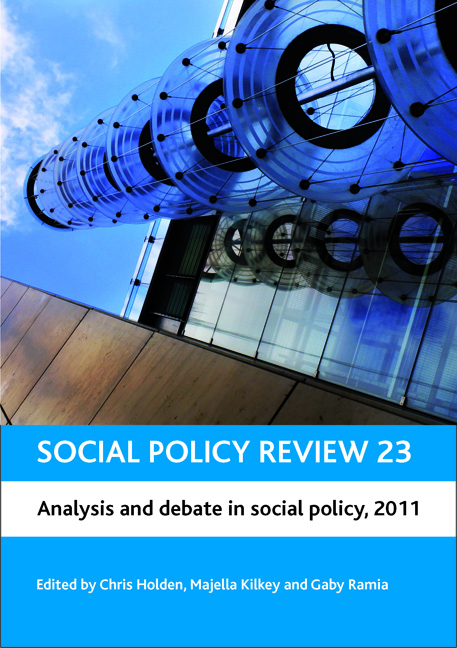eight - Lone parents and the Conservatives: anything new?
Published online by Cambridge University Press: 01 September 2022
Summary
Lone parents – still a policy issue
The phenomenon of lone parenthood continues to challenge policy makers for three main reasons: the high levels of benefit dependency and poverty and the potentially negative outcomes for children (Bradshaw, 2003). The response of past governments has differed over the past 30 years according to their respective ideological approaches, changes to the characteristics of lone parents, broader economic conditions as well as more general attitudinal changes in society. Under the last Conservative government lone parents ‘have been characterised not just as a social problem, but as a social threat, in terms of the amount of public money that is spent on them’ (Lewis, 1997, p 50) while the previous Labour government focused more on moving lone parents into paid work (Millar, 2003) as well as on their responsibility as parents (Williams and Roseneil, 2004). The position of the Conservative Party today contains all three themes – the policy proposals in the area of welfare to work and parenting are quite similar to those of the previous Labour government. Yet the emphasis on marriage and stable families as the ‘better’ family form that should receive more support both financially and in terms of services raises concerns about the perception and support of other family forms such as lone parenthood.
Lone parents in Britain today
Of the 7.6 million families with dependent children in the UK in 2009, 2 million were headed by a lone parent (that is, 27 per cent) (National Statistics, 2010, p 16). In other words, just over one in four families with dependent children is headed by a lone parent in the UK today, having stayed constant since 2000 (National Statistics, 2010). The majority of lone parents were either single or cohabiting (58 per cent) prior to becoming a lone parent, or married (40 per cent). Only a small percentage of lone parents are widowed (three per cent; see Maplethorpe et al, 2010, p 24, table 2.2, Maplethorpe et al's calculations). And while Britain has one of the highest teenage pregnancy rates in the world, the median age of lone parents is 37 years (Gingerbread, 2010). The vast majority of lone parents are women, with less than 10 per cent of lone parents being lone fathers (Gingerbread, 2010; Maplethorpe et al, 2010).
- Type
- Chapter
- Information
- Social Policy Review 23Analysis and Debate in Social Policy, 2011, pp. 147 - 164Publisher: Bristol University PressPrint publication year: 2011



